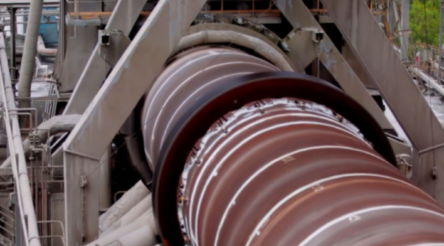Peak industry bodies warn of ‘high-risk’ impacts of new workplace laws

The Business Council of Australia, Ai Group and the Australian Chamber of Commerce and Industry have said proposed workplace laws allowing multi-employer bargaining may have “harmful, unintended consequences”.
The government has accelerated the introduction of the industrial relations bill within the Fair Work Act that allows unions to make enterprise agreements that cover multiple employers within an industry, rather than a single employer, in an effort unions said will help raise wages as it gives workers within an industry power to collectively strike.
The bill was approved by cabinet last Tuesday and will be introduced during a sitting of parliament later this week.
Industry groups said the bill raises the risk of higher unemployment, potentially crippling industry-wide strikes, and could hurt Australia’s economic security.
“The high-risk proposals as they currently stand will create enormous difficulties for business and carry unintended consequences that will cost jobs and cause serious damage to our economy. We need a workplace relations system that is fair for all parties and delivers sustainable benefits to employees,” Ai Group Chief Executive Innes Willox said.
“We must avoid extreme changes that risk imposing damaging strikes and harm to the community and businesses. A responsible approach to changes to workplace laws is crucial. We urge the government to take a breath and avoid rushing to introduce such extreme changes to our workplace relations system.”

SMEs will be heavily impacted by the new laws, industry groups said.
ACCI Chief Andrew McKellar said these proposals could override existing bargaining agreements and force unwanted conditions on workplaces, especially harming small businesses, at a time when the global economy is already weakened.
“Undermining genuine workplace agreements and increasing the scope for aggressive industrial action are a recipe for disaster with deteriorating international conditions,” McKellar said.
He said a recent Productivity Commission five-yearly report also confirmed that a rapid move to multi-employer agreements could lead to a potential surge in strikes, supply chain bottlenecks, and a chain reaction of unsustainable wage claims.
Business Council of Australia Chief Executive Jennifer Westacott said the new laws should not be rushed and urged the government to “tread carefully”.
“We want wages to go up but that won’t be achieved by creating more complexity, more strikes and higher unemployment,” she said.
“Australia is in the midst of a global economic storm and there’s no room for error if we want to secure our economic future.”
The Australian Workers Union have welcomed the new laws. It said workers needed a fairer bargaining system and the bill provides a pathway to address slowed wage growth. They said the current systems of single-employer bargaining are “divide-and-conquer tactics”.
“The bargaining system has not been updated to reflect changes in Australian workplaces and is no longer delivering the wage growth working people need,” AWU National Secretary Dan Walton said.
“We need more options for collective bargaining, including multi-employer or sector bargaining, which would allow multiple workplaces to make an agreement together. This would improve access to better pay and conditions for large sections of the workforce, for which bargaining is effectively currently unavailable.
“We need a new bargaining system that is simple, fair and accessible for all.”
@aumanufacturing Sections
Analysis and Commentary Awards Defence Manufacturing News Podcast Technology Videos










